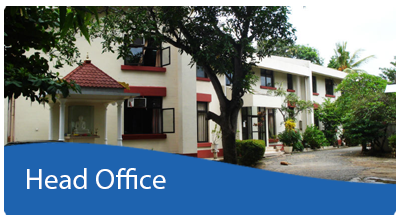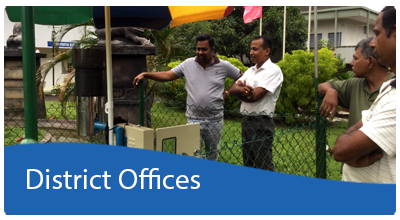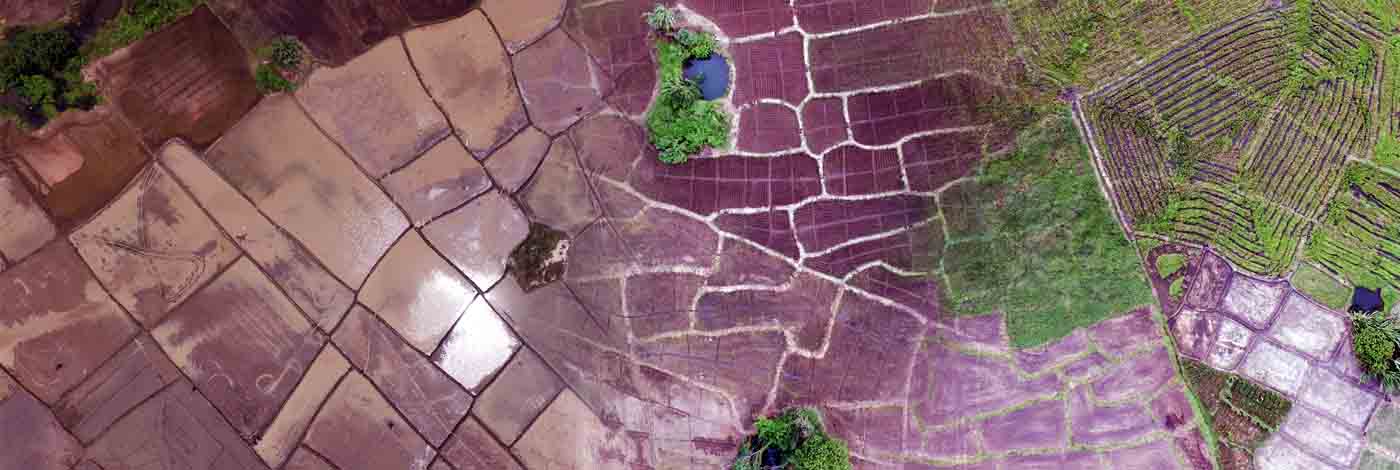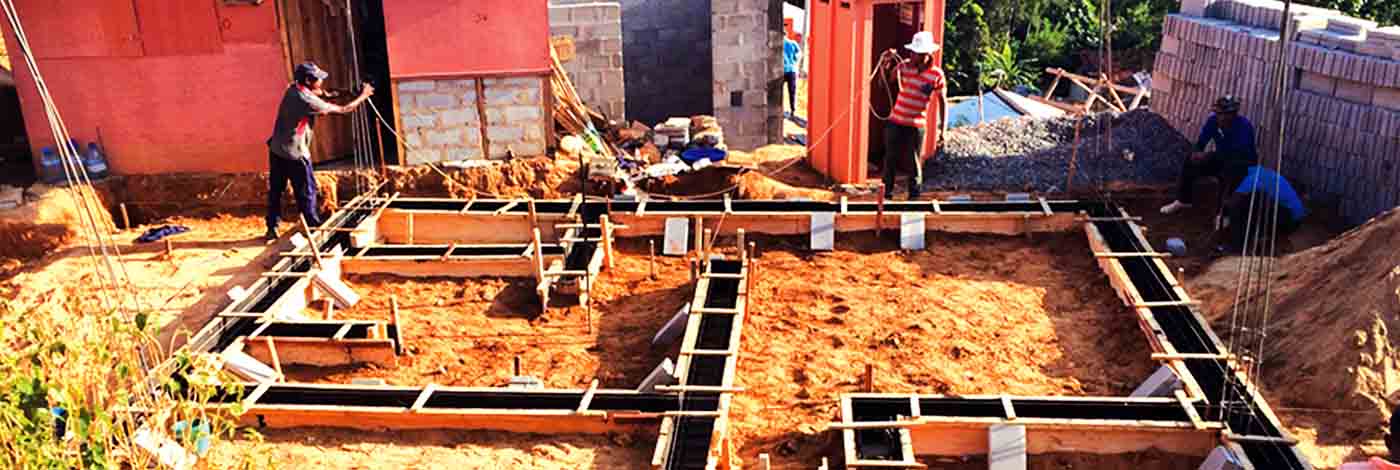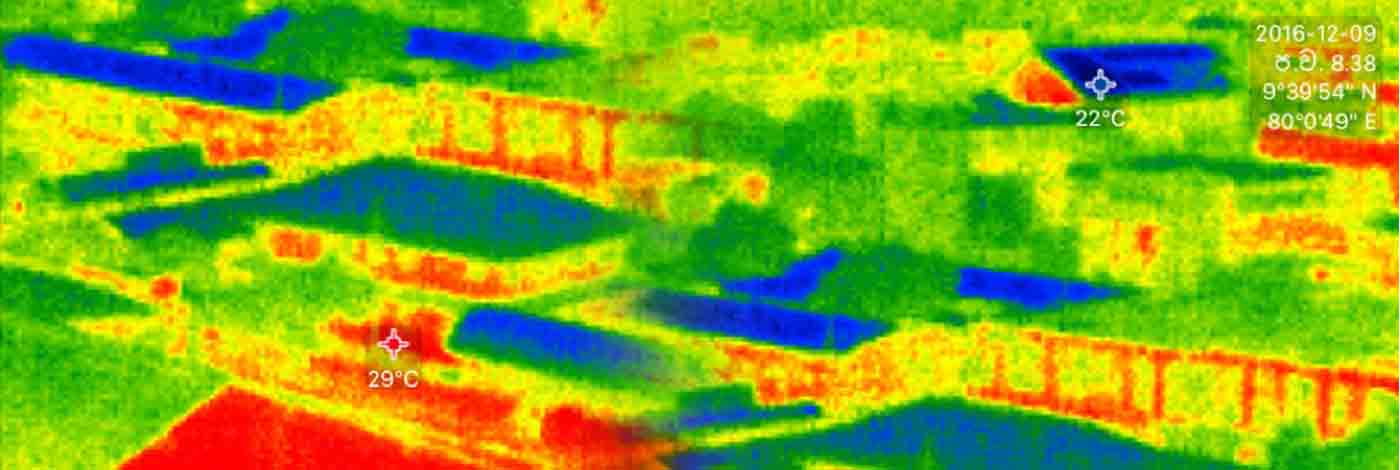
| “To be the Think Tank in settlements adaptation to mitigate the impacts of climate change and associated disaster risk through Innovations in Building Resilience” |
Human Settlements Planning and Training Division (HSPTD) of NBRO has expanded its capacity and focusing on providing an advocacy service in settlements adaptation to mitigate the impacts of Climate Change and associated disaster risk ensuring the disaster resilience of the communities and built environment, which will be an utmost priority in coming decades.
Sri Lanka as a tropical island country, specially located facing the Bay of Bengal, is inherited with unpredictable extreme weather events and country is experiencing multi hazard conditions; such as floods, landslides, high winds and droughts, at an increasing frequencies; where level of risks are getting increased due to increasing exposure and vulnerabilities of settlements and elements with inadequate focus on mainstreaming disaster resilience concerns into development planning, implementation and society as a whole. Thus, with the Climate Change phenomena, impacts to Sri Lanka could be multi-dimensional in nature, which people, economy, built environment and even the natural environment will be affected. It is required an inter-disciplinary and integrated approach to address the issue, where HSPTD has developed its capacity to perform advocacy service to provide technical knowhow in settlements adaptation to mitigate the impacts of the Climate Change and associated disaster risk under the overarching goal of Building Resilience, in line to international norms and conventions; mainly The Sendai Framework for Disaster Risk Reduction 2015-2030, The Paris Agreement of the United Nations Framework Convention on Climate Change, and the 2030 Agenda for Sustainable Development.
HSPTD welcome collaborations among local and international partner agencies, professionals and researchers on knowledge creation, knowledge sharing, resources sharing and applications to address the issues cause to built environment and people due climate change and disaster risk. Successful collaborative programs have been completed/ongoing with Vanderbilt Institute for Energy and Environment (VIEE), United States of America; Japan International Cooperation Agency (JICA); Asian Disaster Preparedness Centre (ADPC), Thailand; Norwegian Geotechnical Institute (NGI); Think Lab, University of Salford, United Kingdom; UN Habitat, Sri Lanka, UNDP, Sri Lanka, World Food Program (WFP), Sri Lanka; Red Cross Society, Sri Lanka; and Institute of Town Planners Sri Lanka.
OBJECTIVES OF THE HSPTD:

AREA OF EXPERTISE
- Assessing exposure, vulnerability and risk for disasters, and emphasizing for DRR concerns.
- Guiding on mainstreaming DRR measures in townships/settlements planning, designing and implementation.
- Development Guide Plan (DGP) formulation for redevelopment of disaster affected locations/settlements.
- Socioeconomic investigations and participatory planning approaches for community and stakeholder consultation.
- Conduct cost benefit analysis and guiding on development potentials in line to the national, regional and local level spatial planning context.
- Guiding investors/developers on resilient development and constructions.
- Geo spatial mapping and analysis with the application of advance remote sensing, Arc GIS, Open Sources and Drone Technologies.
- Disaster resilient houses designing and construction management.
- Conduct capacity building programs on DRR, disaster resilient development and construction for practitioners, public sector agencies, land use planning related agencies, developers, built environment professionals and communities.
- Technical consultation for the post disaster redevelopment and reconstructions under the concept of Build Back Better.
- Environmental and Social Management of Construction Projects
- Spatial databases and digital platforms development to connect people and stakeholders for risk communication.
- R & D services in the area of settlements adaptation to climate change with special reference to land use planning, land policies, building regulations, land subdivision, housing designing, construction and digital platforms development.
- Conduct community preparedness and community based disaster risk reduction programs.
- Provide technical services on loss and damage assessment for natural disasters and post disaster need assessment.
- Technical collaborations with local and international agencies on join research and development activities in the area of climate change, settlements adaptation and DRR.
|
PROJECTS |
PUBLICATIONS |
AWARENES MATERIALS |
||||||||||||||||||||||||||||||||||||||||||||
|
COLLABORATIONS |
INTERNSHIPS |
OUR TEAM |
||||||||||||||||||||||||||||||||||||||||||||
For Further information, please contact;
Plnr. Chinthaka Rathnasiri
Acting Director
Human Settlements Planning and Training Division
Telephone: (+94)112 588946, ext. 640
Email:This email address is being protected from spambots. You need JavaScript enabled to view it.









